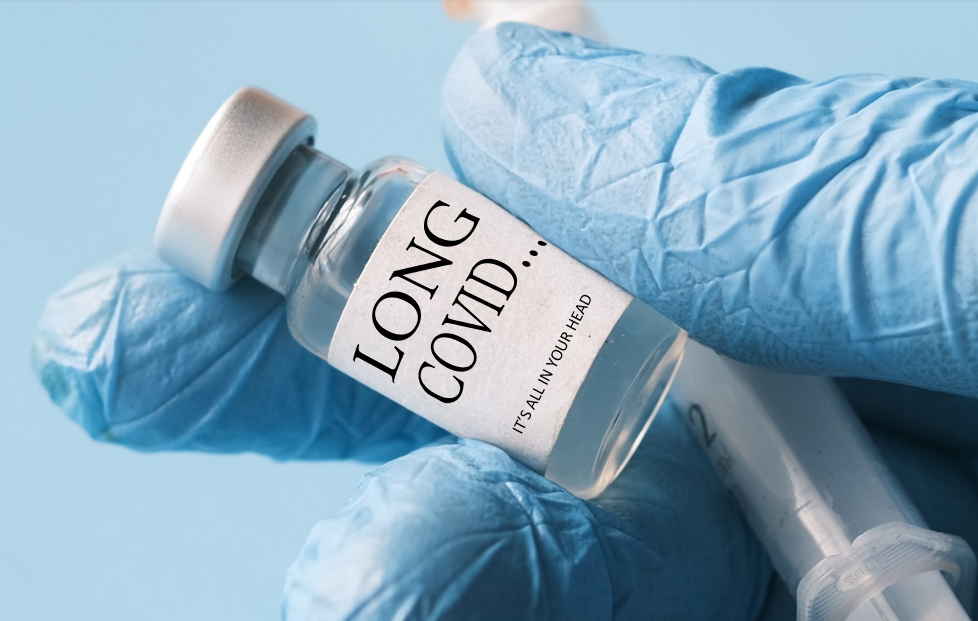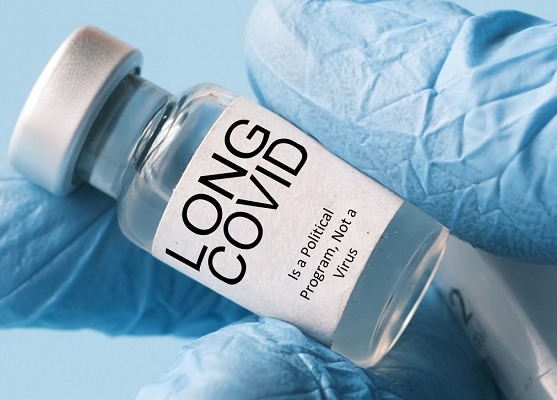Researchers looked at “the prevalence and associated risk factors of post–COVID-19 condition (PCC) in young people after mild acute infection.” What they discovered was its prevalence absent any infection.
What will annoy them more? There’s clinical research suggesting long covid is a mental illness or that we reported on that over a year ago.
From the research – Emphasis Mine.
Findings This cohort study included 382 SARS-CoV-2–positive individuals and a control group of 85 SARS-CoV-2–negative individuals aged 12 to 25 years who were assessed at the early convalescent stage and at 6-month follow-up. When applying the World Health Organization case definition of PCC, prevalence at 6 months was 49%, but was also comparably high (47%) in the control group. PCC was not associated with biological markers specific to viral infection, but with initial symptom severity and psychosocial factors.
Psychosocial means relating social conditions to mental health. The other term for this is Somatic symptom disorder: “…any mental disorder that manifests as physical symptoms that suggest illness or injury, but cannot be explained fully by a general medical condition or by the direct effect of a substance, and are not attributable to another mental disorder.”
We can paint that picture.
The pressures and strains associated with being fearmongered, locked down, remoted, masked, distanced, masked, hand sanitizer, and masked, combined (perhaps) with the oversized amount of attention or focus (or social sympathy) for those claiming symptoms or infection…in a world where being noticed is a higher social good than being healthy.
Long COVID is a social disease!
The point prevalence of PCC at 6 months was 48.5% in the SARS-CoV-2–positive group and 47.1% in the control group (risk difference, 1.5%; 95% CI, −10.2% to 13.1%). SARS-CoV-2 positivity was not associated with the development of PCC (relative risk [RR], 1.06; 95% CI, 0.83 to 1.37; final multivariable model utilizing modified Poisson regression). The main risk factor for PCC was symptom severity at baseline (RR, 1.41; 95% CI, 1.27-1.56). Low physical activity (RR, 0.96; 95% CI, 0.92-1.00) and loneliness (RR, 1.01; 95% CI, 1.00-1.02) were also associated, while biological markers were not. Symptom severity correlated with personality traits.
The only reference I could find to vaccination status was this: “The SARS-CoV-2–positive group had received fewer immunization doses in the observational period; otherwise, the 2 groups remained comparable.”
Lacking any other detail, it looks like “the response” is responsible for long covid, not COVID, which is interesting. In March of 2022, we reported that,
[VA Sen. Tim]Kaine has a bill to throw buckets of money at more research, but the NIH has already laundered 1.5 billion on the idea of the “prolonged health consequences of COVID19.” Long COVID.
I have a better idea. Read GraniteGrok. We spent zero federal dollars reporting on the prolonged health effects of the COVID19 response. The policies and programs that are in my mind responsible for a lot of ills, including Long COVID.
“Jeremy Devine, a resident psychiatrist at McMaster University in Hamilton, Ontario, argued in a Wall Street Journal editorial last year that long COVID is “largely an invention of vocal patient activist groups.” He says symptoms attributed to long COVID could be “psychologically generated” or “caused by a physical illness unrelated to the prior infection.” …
“[The] fear of chronic illness is likely the underlying problem.”
I created the featured image above for the March 22 piece and this one a few month later.
Oops, we were on the right side of the science again!
Exit Question: When does Pfizer announce they have a new drug to treat the mental illness of Long COVID?
The WHOs “definition” of PCC, or Post COVID Condition, can be found here.

